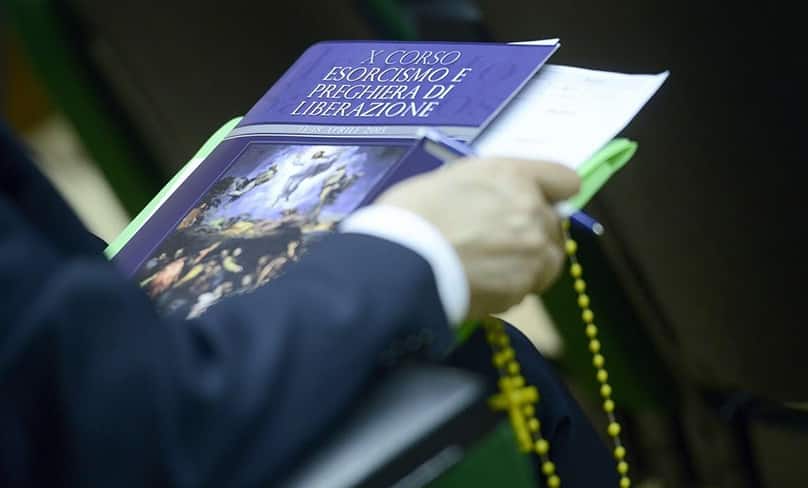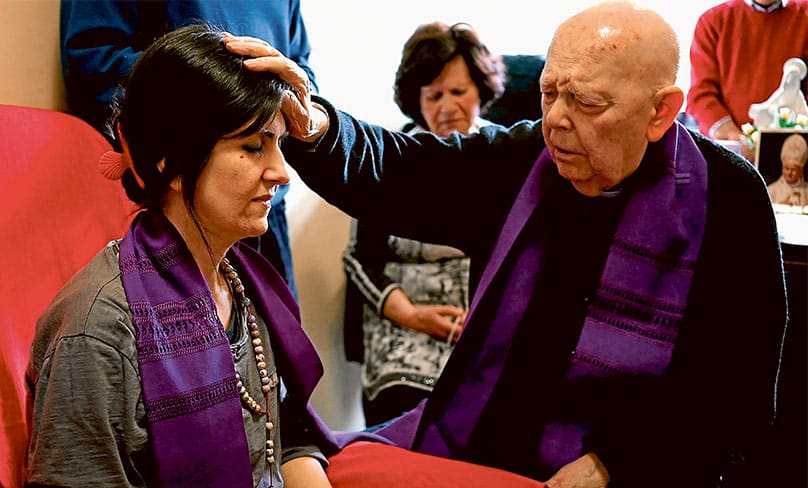
If you read reports in secular media, you might conclude that the Vatican runs an annual “crash course” on exorcism which certifies 250 or so new exorcists each year.
Having just returned from the so-called “Exorcism Course,” I can confirm it is nothing like that. Seven Aussies and two Kiwis attended this year’s course, and only one of us was an exorcist — an assignment he received some 40 years ago, quite independent of the Vatican course.
Most of the Australians present were priests like me, less than ten years ordained, who have recognised a deficiency in our priestly training. (In saying that, I don’t mean to criticise our seminary formation. It’s an impossible task, to condense the expanse of the Church’s pastoral wisdom and practice into seven years of study.)
In ordinary parish settings, we have encountered people who are fearful of demonic activity in their lives, and others who are happily and obstinately ensconced in New Age practices.
We all felt that we lacked sufficient means to competently and confidently respond to our people’s needs.
The conference was a great help in resolving a real pastoral deficiency. I highly recommend it to interested priests.
While most participants were priests, there were also many lay faithful. Some were medical professionals: physicians, psychiatrists, psychologists. Some were experts in demonology; others run healing retreats and prayer apostolates.
For the first time, an invitation was extended to Christians from other denominations, which attracted a small number of Anglicans, Episcopalians and Evangelical Protestants.
The conference spanned six days, during which several speakers repeated a warning C.S. Lewis issued in his preface to The Screwtape Letters:
Taking the Devil seriously
There are two equal and opposite errors people make about the devils. One is to disbelieve in their existence. The other is to believe, and to feel an excessive and unhealthy interest in them. They are equally pleased by both errors and hail a materialist or a magician with the same delight.
It was refreshing, to be surrounded by people who take the devil seriously but not sensationally. Discussion was sober and matter-of-fact. We were well equipped to avoid the errors of the materialist and the magician, and think with the mind of the Church.
I think there’s a need — and, I hope, an appetite — for a conference such as this in Australia. Perhaps not annually, but every few years.
The Church’s pastoral practice — even in an area as arcane as deliverance from the demonic — must aspire to the best professional standards: cross-disciplinary approaches; evidence-based practice; peer support; clinical supervision.
A local adaptation of Rome’s exorcism course would help foster that.
In one memorable Q&A session, an audience member queried the efficacy of modern exorcism.
In cases of demonic possession, it typically takes 12 to 18 months for a person to be totally freed. Anecdotal evidence suggests that in earlier times, and especially in the Apostolic Age, cases were resolved in days or hours. “Are our rites less powerful? Are we doing something wrong?”

The answer was long and exhaustive, delving into the history of the Church’s ritual, and the accuracy of ancient and medieval sources. But the professor concluded with a fascinating observation. “Perhaps it is not our rites which are at fault, but the Church’s faith.”
Pope St John Paul II identifies “a communion of sin,” whereby even the most private and secret sin of an individual “drags down with itself the Church and, in some way, the whole world” (Reconciliatio et Paenitentia, 16).
The Church is a communion — for good and ill. Just as our sins impact the Church and the world, so too our faith.
Jesus, you will recall, related his healing ministry to the faith of the people. His miracles in Nazareth were limited due to lack of faith (Mt 13:58; Mk 6:5). He often repeated some variation of, “Your faith has healed you” (Mk 5:34; Mk 10:46; Lk 8:48; Lk 17:19).
A terrible crisis of faith afflicts the modern world. Perhaps we should not be surprised if the process of exorcism takes longer than in ages past. That idea has moved me — and I hope it also inspires you — to make frequent acts of faith every day, chief among them: “Lord, I believe! Help my unbelief.”
Related stories:
